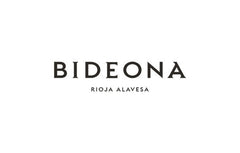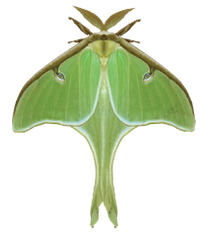279 products
- White Wine
- Viura
- Sustainable
- Dry
- Residual Sugar: 1.7 g/l
- 750ml
- 13.5% alc./vol
About the Winery
Bideona

Bideona owns or manages over 300 parcels of extraordinary vines in villages throughout the Rioja Alavesa, the coolest, smallest and most Atlantic sub-zone of Spain’s most famous wine region.
The vineyards of the Rioja Alavesa are defined by parcels of old bush vines planted on terraces or hillside slopes with a high percentage of limestone. Located in the foothills of the Sierra Cantabria, Bideona’s vines have an average age of 50 years and many were planted in the 1920s, 30s and 40s, before high-yielding clones became available.
Bideona puts the focus firmly on terroir by making each wine in its Vino de Pueblo range as a field blend of Tempranillo and other native varieties from plots in an individual village. Each is named with an acronym – L3Z4 for Leza, L4GD4 for Laguardia, S4MG0 for Samaniego and V1BN4 for Villabuena – owing to DOCa Rioja regulations that only allow village names to be marked if both the winery and the vineyard are in the same location.
“Bideona’s reason for existence is to make wines that show the personality of the Rioja Alavesa and its historic wine villages” states company co-founder and director, Andreas Kubach MW. “We have access to a wealth of diverse plant material in our parcels of old vines, which we believe contributes to the complexity of the wines as well as the differences between villages.”
Press Reviews
Wine Align
93 points - David Lawrason
This is a high altitude, old vine viura from the foothills of the Cantambrian mountains in Rioja Alavesa. It has pure crystalline nose of lemon, pear, subtle chive and wet stone. It is crisp, taut and very well balanced with only 12.5% alcohol providing the sense of restraint. Really nicely done. The length is excellent. This should age very well, as the best white Riojas usually do, Might even expand its flavour profile. Tasted December 2024
92 points - Michael Godel
Quite the concentrated though also sharp and pointed white Rioja from Bideona called Las Parcelas which refers to the blocks chosen for this unique cuvée. Not just sharp but high acid to elevate the boldness of the build in a medium-bodied while also amply ripe viura that lowers significantly from 2020 to finish here at 12.6 percent alcohol. Comparatively speaking this is tighter and of a greater intensity without compromise, though fruit (other than citrus) does not dominate the poignancy of this truly salty vintage. Drink 2024-2027. Tasted December 2024.
91 points - Sara d'Amato
A relative newcomer to Rioja, Bodega Bideona was founded in 2018 and is a joint venture between Basque entrepreneur and txakoli producer, Gorka Izagirre and Península Viticulores, which is run by two Masters of Wine Andreas Kubach and Sam Harrop. The estate manages 100 hectares of vineyards in 300 plots across the foothills of the Sierra de Catabria that include a site planted in 1920. The "Las Parcelas" Blanco is made from 100% viura from various sites and features almond, yellow apple, pear, and just-ripe white peach. This juicy, lightly oily find is high in acid and salty, chalky mineral. Offers an appealing texture, little to no oak, a very good concentration of flavours and notable structure. Features a firm finish of memorable length. Tasted December 2024.
91 points - John Szabo, MS
A 'regional' wine in the Bideona internal classification, produced from multiple parcels throughout the Rioja Alavesa, absent oak influence, this is yet another impeccably-made, balanced wine from this highly reliable estate. I love the sapid acids, drawing saliva, the slight tug of tannins framing the autumnal fruit, the lingering finish. Succulent and saline, delicious and fairly priced. Drink or hold 3-4 years for maximum benefits. Tasted December 2024.
- White Wine
- Chardonnay
- Dry
- 750ml
About the Winery
Domaine Louis Moreau

Winemaker Louis Moreau is the master of the Chablis terroir, where he bottles 100% Chardonnay wines from all four levels of appellation: Petit Chablis, Chablis, Chablis Premier Crus and Chablis Grands Cru.
The Domaine owns parcels in five of the seven Grands Cru climats, and works with many plots throughout the region in a sustainable manner. The most prestigious of its wines is the monopole Chablis Grand Cru 'Clos des Hospices' dans Les Clos AOC 2016, acquired by the Moreau family in 1904.
Louis Moreau, who has been leading the domaine since 1994, produces wines with a unique style. Louis Moreau studied oenology-viticulture at Fresno State University and worked at different Californian wineries before he took over the Domaine's operations in 1994, representing the family's sixth generation of vignerons.
- White Wine
- Sauvignon Blanc
- Sustainable
- Dry
- Residual Sugar: 4.00 g/l
- Medium Bodied
- 750ml
- 13.00% alc./vol
Press Reviews
Wine Orbit
93 Points - Sam Kim
Intensely aromatic and instantly appealing with fresh fig, kiwifruit, lime zest and jasmine characters, it's punchy and flavoursome in the mouth, delivering excellent weight and fruit purity. Delectably appealing with vibrancy and persistency. At its best: now to 2025Wonderfully fruited and immediately appealing, the wine shows passionfruit, feijoa, lime peel and subtle musky characters on the nose, followed by a succulent palate that is both powerful and delicious. It’s pristine and vibrant, and fabulously drinkable. At its best: now to 2022.
- White Wine
- Chardonnay
- Dry
- Residual Sugar: 2.00 g/l
- Medium Bodied
- 750ml
- 13.00% alc./vol
Press Reviews
WineAlign
91 Points - Michael Godel
As per a label’s meaning, “Per aspera ad astra,” from rough roads to the stars. Reiterated because this is the crux of the Nicolle situation for proprietor Charly, he who has had to work hard to bring a mom and pop Chablis estate into the modern world. A very encouraging and duly impressive Chablis at the AC Villages level, searing and intense with enough flesh to expand on the palate in spite of the conglomerate Kimmeridgian and Portlandian elements desiring to dominate. Reels at first but then constructs a necessary balance to make this a very fine wine. Way to go Charly. Drink 2024-2028.
- White Wine
- Pinot Gris
- Sustainable
- Dry
- Medium Bodied
- 750ml
- 13% alc./vol
About the Winery
Lighthall Vineyards
 Lighthall Vineyards is a small, proud, low volume and high quality winery located in enchanting Prince Edward County, Ontario, Canada. All their wines are produced in a non-interventionist manner and fuelled by passion as hearty as our vines. They also make cheese, designed to pair with their wines.
Lighthall Vineyards is a small, proud, low volume and high quality winery located in enchanting Prince Edward County, Ontario, Canada. All their wines are produced in a non-interventionist manner and fuelled by passion as hearty as our vines. They also make cheese, designed to pair with their wines.
Press Reviews
Wine Align
91 points - Michael Godel
Lighthall’s pinot gris not only indicates but clearly demonstrates more richness and flesh than most varietal PEC iterations that have come before. Of course it never fully drifts away or leaves its PEC reality behind but the texture and radiance are at a high level in Glenn Symons’ 2021. Also the ever, if maybe even omnipresent chèvre waft that Lighthall’s last few vintages seem to possess, Loire like if you think about it and even pinot gris gets the messaging. When pinot gris shows character and individuality we must take notice. Drink 2022-2025. Tasted May 2022.
Featured in Vine Routes
From vineyards located within a warmer micro-territory (called South Bay) in the cooler Prince Edward County appellation, this pinot gris is refreshingly lighter on the ABV (12%/vol.) with a quite noticeably creamy and rich texture to it – largely attributed to malolactic fermentation and cold-stabilization methods. The winemaking team also uses an Alsatian yeast strain and fermented one quarter of the juice in neutral French oak, with the other 75 percent in steel tank. The result is a complex wine, with an intriguing flavour profile, including ripening pear and a freshened mineral characteristic that really sets this apart. I even get the hint of nutmeg that I’m being told to look for in this. Will develop further with a bit more time in bottle, that I am certain of.
- White Wine
- Chardonnay
- Sustainable, Volcanic
- Dry
- Residual Sugar: 2.00 g/l
- Medium Bodied
- 750ml
- 12.50% alc./vol
About the Winery
Vinos Baettig

Francisco Baettig and Carlos de Carlos have been friends for more than 20 years and share a passion for high-quality wines that are genuine and connected to the land where they are made.
"A promising project in a wine region that is the future of high-quality Chilean wines" - Patricio Tapia, Descorchados
Press Reviews
James Suckling
95 Points - Zekun Shuai, Senior Editor
A warmer vintage gives the wine a little more substances but arguably less tension, acidity and minerality than 2022. Still, this is an incisive chardonnay, showing seashell, lemon zest and iodine character. Just a touch of pie crust. Medium- to full-bodied on the palate with fresh acidity and a mineral-driven finish. 26,000 bottles made. Delicious now but can hold.
Vinous Media
94 Points - Joaquín Hidalgo
The 2023 Vino de Viñedo Los Parientes Chardonnay originates from Traiguén, Araucanía. Aged for eight months in French oak barrels, this yellow hued wine reveals aromas of green apple subtly complimented by pineapple and ginger notes with a soft touch of acacia. Dry, creamy and taut on the palate, it offers an oily yet refreshing mouthfeel that lingers with a vibrant acidic edge. A deliciously nuanced and faintly textured Chardonnay, the 2023 closes with an enticing cedar finish.
- White Wine
- Chenin Blanc
- Sustainable
- Dry
- Residual Sugar: 3.00 g/l
- Medium Bodied
- 750ml
- 12.50% alc./vol





























